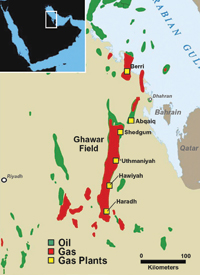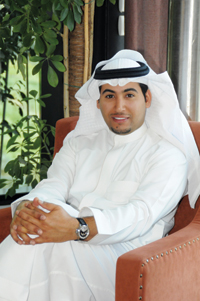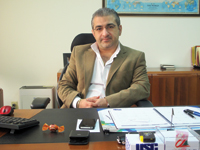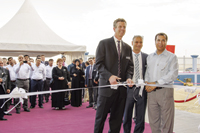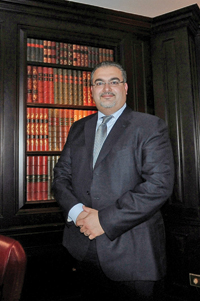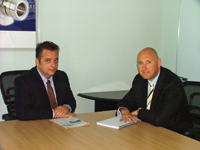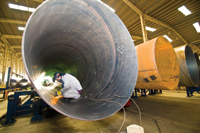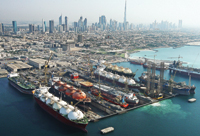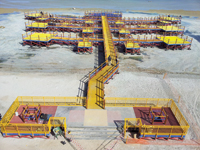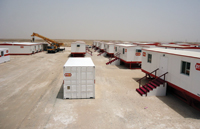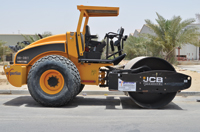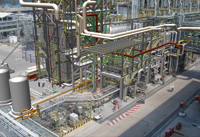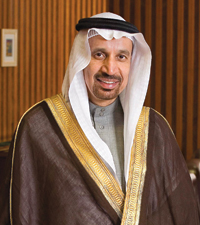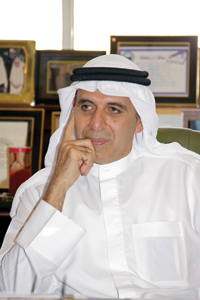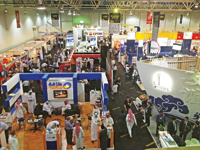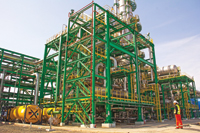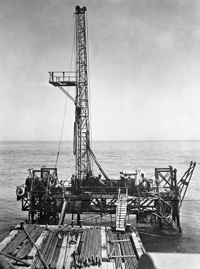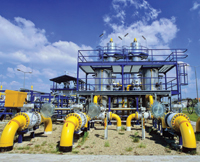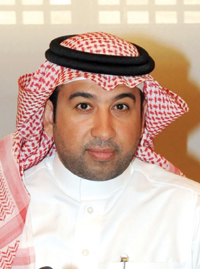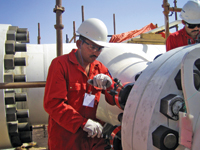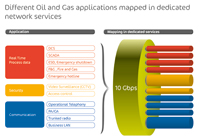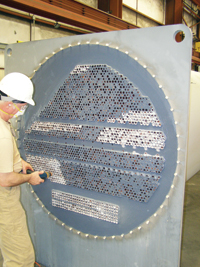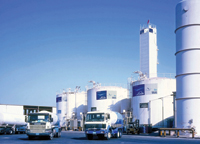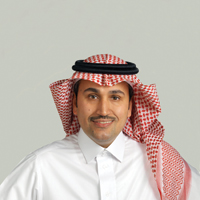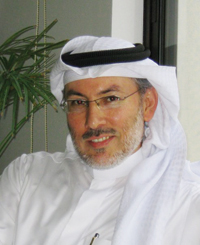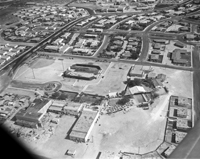
 Alawadhi ... the ‘market has changed’
Alawadhi ... the ‘market has changed’
USING a business model that aims at providing exactly what the market requires, Maban Real Estate Investment has been focusing on meeting the surging demand for housing in the Eastern Province of Saudi Arabia which suffers a serious shortage of reasonably priced homes.
The real estate investment firm is currently developing more than three million sq m of land, having just recently completed two residential projects in the heart of Dammam and a residential and commercial plot in the Al Nada-Al Dammam area.
Maban Real Estate Investment was established some seven years ago to capitalise on growing demand for middle income housing in the Eastern Province, offering high-quality land and residential developments at competitive prices. The Dammam-based company has come a long way since and describes itself as “one of the few real estate companies in the Eastern Province deploying international standards”.
“We have sufficient staying power, supported by a strong board and management team,” says Mahmoud Alawadhi, company managing director.
Alawadhi admits the market has changed markedly since 2007. “We understand that markets are always dynamic, there are always uncertainties, there could be risks or opportunities – the real strength lies in harvesting the opportunities and at the same time managing risks,” he says.
Maban has, he says, taken advantage of changes in the market by following a diverse investment approach and taking wise investment decisions. “Today we hold a competitive position within the Eastern Province market, capitalising on our unique experience of large-scale projects,” he adds.
There is high demand for real estate in the Eastern Province because of its large population and a growing industrial base, according to Alawadhi. “In terms of population, it is the third largest in the kingdom, and occupies a strategic location as both an origin and a destination of demand – and it is home to the biggest oil and gas companies and industrial cities in the world, which are considered major market drivers,” he says.
He believes the large infrastructure investments currently taking place in the region are also benefitting the real estate sector. “Infrastructure and transport developments create a domino effect for real estate: they inject momentum into the market, gearing up the whole lifecycle of developments in general,” he explains.
 |
|
The interiors of a Maban project |
The Eastern Province also contains a strong transport and logistics environment, including King Abdul Aziz Sea Port in Dammam, Ras Al Khair port and the port at Jubail. The province is also well connected with railway networks, says Maban.
For Maban, a strategic focus on projects that provide value to the community fits naturally with the Eastern Province’s pressing needs for “reasonably priced” housing. But Alawadhi points out that “rigorous market, technical and financial studies are the nucleus of any project as they logically reflect what buyers’ needs are”.
“What we know already is that only a minor percentage of supply currently addresses market needs – high-end residential property accounts for a very low percentage of the market, so we concentrate on the middle of the market,” he says.
“We have had an entire team assembled from day one so we get an educated estimate for demand which covers all aspects, so at the end we have a logical model upon which we decide to invest in any given project. We refer to business indicators throughout the development process, ensuring the delivery of a quality investment throughout the business lifecycle. This co-operation and consistency throughout the various phases of a project is unique in the industry and is rarely found anywhere else,” he says.
In its favour, Maban already has under its umbrella an established network of sister companies in the Eastern Province, with which it can collaborate on infrastructure development expertise and property management services, including a reputed construction contractor. “This puts us in a perfect position as a full chain, sustainable lifecycle developer,” Alawadhi continues.
The executive reveals that the company is now planning its next project in Al Aziziyah. The project, he says, will be “competitively priced and of good quality”, and that by mid-2014 a “good number” of the 68 villas, which will be developed in phases, will have been completed.
“It will be iconic in all aspects, with a unique design, and a unique balance of indoor and outdoor spaces,” he states.
Maban’s plans also include two major developments: one close to the Saudi Aramco complex and the other near the industrial city of Jubail to the north. The company also intends to develop a 500,000-sq-m mixed-use project by 2015, which it describes as “an excellent example of a fully-integrated environment where people will work, live and be entertained.”
Alawadhi is cautiously optimistic about the effect Saudi Arabia’s new mortgage law will have on developers like Maban.
“It (the new law) will undoubtedly be a demand driver. Its objective is to benefit the community by providing more purchasing power. But how will buyers respond to the law? We will have to look at the mechanisms, and understand how they will be applied.”
The pressure will also be on financing solutions specialists, who will be tasked with bearing a major part of the load, he says.











































































